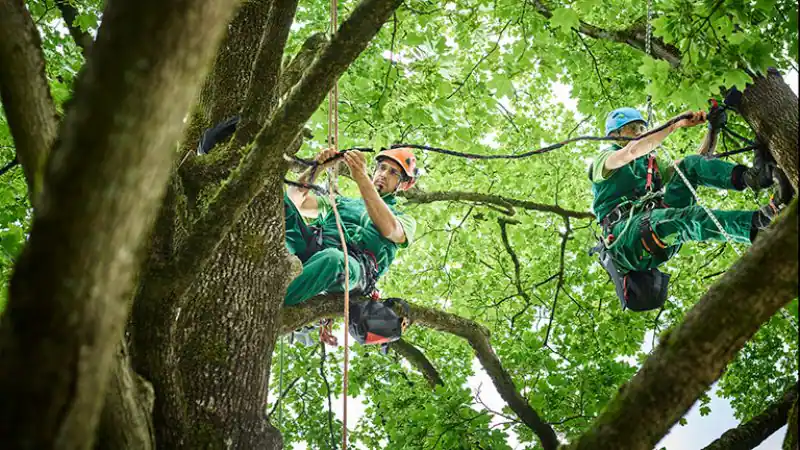ACCORDING TO THE ASSOCIATION’S WEBSITE, an ISA certification indicates that the professional is qualified, experienced, and “dedicated to properly caring for and preserving their trees,” according to the association’s website. In addition, services with this accreditation have completed professional development to keep them at the forefront of industry best practices.
Working with someone who is a member of the TCIA has the advantage of keeping you up to date on regulatory standards in the tree care industry. They also collaborate with Congress to advocate for advancements in the tree care business.
Another advantage of employing a professional with these credentials is that many firms demand them to be insured.
Dig Deeper to Verify Insurance Coverage
Don’t merely take a contractor’s insurance certificate at face value. You want to know more to safeguard both you and the contractor, such as the type of insurance. For example, liability insurance ensures that you will not have to pay if the firm destroys your home or goods. If a contractor gets harmed while removing a tree, worker’s compensation benefits both you and the employee. It also shields you against lawsuits that may be brought against you due to something that went wrong on the job.
To confirm coverage, ask the contractor for the name and phone number of the company and agent. If the contractor is hesitant to provide you with this information, this could be a red sign. Then, contact the insurance carrier to review the contractor’s coverage and obtain an insurance certificate. Even if the contractor gives you one before you call, you can still call to double-check.
You might work with a bonded contractor, which implies they have private bond insurance. This can be beneficial because if they fail to perform their duties, you can seek compensation from the bond issuer. Being bonded also implies that they have pledged to follow all regulations based on any building permits required for the job.
Find Your Referrals—and Contact Theirs, Too
Typically, you ask the service provider for referrals, which can be beneficial. But what if, for every three excellent encounters you have, there are hundreds of unhappy customers? To avoid this, conduct your referral research by speaking with individuals who have used the service. A simple post to your favorite local social media group can disclose a lot. Then contact the referrals provided by the company.

